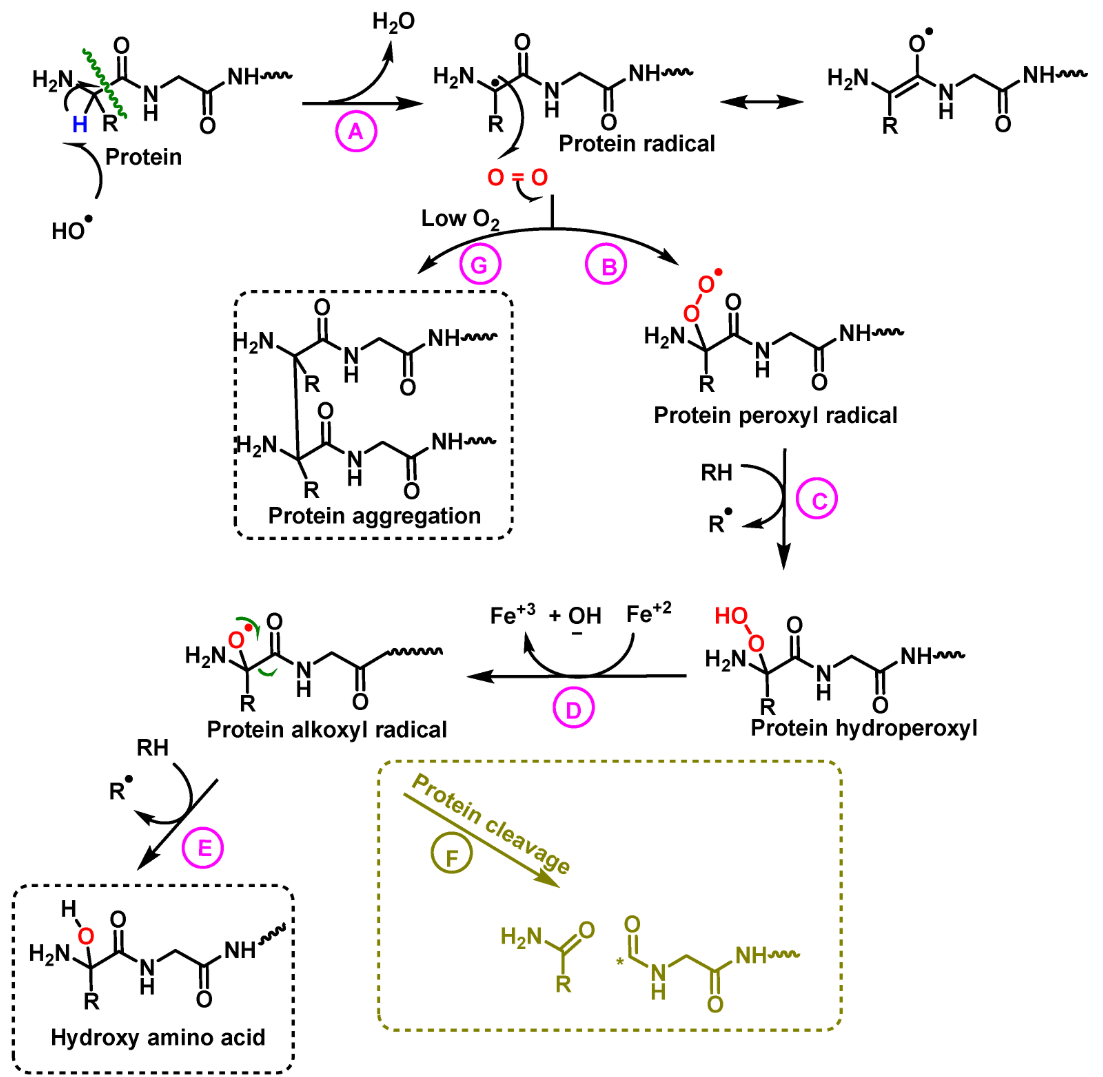Hydroxylation Proteomics Service
Hydroxylation is a post-translational modification (PTM) involving the enzymatic addition of a hydroxyl group (–OH) to amino acid side chains, most commonly proline, lysine, asparagine, and tyrosine residues. This seemingly small modification can have profound effects on protein structure, stability, interactions, and cellular signaling. Protein hydroxylation is catalyzed by various hydroxylase enzymes, such as prolyl hydroxylases (PHDs) and lysyl hydroxylases (LHs). These enzymes often require oxygen, Fe²⁺, and α-ketoglutarate as cofactors and are highly sensitive to cellular oxygen levels, linking hydroxylation directly to hypoxia signaling, collagen maturation, and epigenetic regulation.

Figure 1. Mechanism of Protein Hydroxylation
Service at MtoZ Biolabs
MtoZ Biolabs offers a fully integrated Hydroxylation Proteomics Service designed to uncover the biological functions and regulatory mechanisms of protein hydroxylation. Our Hydroxylation Proteomics Service platform combines high-resolution mass spectrometry, targeted enrichment methods, and expert bioinformatics to achieve precise detection and quantification of hydroxylation events, even in low-abundance proteins. In addition to hydroxylation, MtoZ Biolabs offers a wide range of post-translational modification services, including phosphorylation, glycosylation, acetylation, and ubiquitination, enabling comprehensive PTM profiling in complex systems.

Figure 2. Workflow for Hydroxylation Proteomics Service
Service Advantages
✔️High Sensitivity & Specificity: Advanced MS systems enable accurate detection of subtle hydroxylation shifts.
✔️Customizable & End-to-End Service: From sample prep to bioinformatics, tailored solutions meet diverse research needs.
✔️Comprehensive Report: Receive curated reports with annotated peptides, quantitative data, and functional insights.
✔️Responsive Scientific Support: Dedicated team for consultation, method customization, and post-project interpretation.
Applications
1. Hypoxia Response
Hydroxylation is key to regulating hypoxia-inducible factors (HIFs). Our Hydroxylation Proteomics Service enables site-specific analysis of HIF hydroxylation under normoxic and hypoxic conditions, supporting studies on oxygen sensing and cellular adaptation.
2. Collagen and ECM Biology
Hydroxyproline and hydroxylysine are critical for collagen stability and extracellular matrix integrity. We help identify and quantify these modifications in collagen and ECM proteins, aiding research in fibrosis, development, and wound healing.
3. Cancer and Fibrosis
Abnormal hydroxylation patterns are linked to tumor progression and fibrotic remodeling. Our service supports the discovery of hydroxylation-related biomarkers and therapeutic targets in these diseases.
4. Epigenetic Regulation
Hydroxylation affects chromatin-modifying enzymes and histone-interacting proteins. We provide high-resolution mapping of nuclear hydroxylation events to support studies on gene expression and epigenetic control.
Sample Submission Suggestions

Storage and shipping: Store all samples at –80°C. Ship on dry ice with appropriate labeling and documentation.
*Note: If you have specific requirements or need guidance on sample preparation, please do not hesitate to contact us.
Deliverables
1. Comprehensive Experimental Details
2. Materials, Instruments, and Methods
3. Total Ion Chromatogram & Quality Control Assessment (project-dependent)
4. Data Analysis, Preprocessing, and Estimation (project-dependent)
5. Bioinformatics Analysis
6. Raw Data Files
With advanced mass spectrometry platforms, specialized enrichment strategies, and expert data analysis, MtoZ Biolabs is committed to helping you uncover the full biological relevance of hydroxylation in your research. Contact us today to discuss your project and request a custom proposal.
Related Services
Collagen Lysine Hydroxylation Analysis Service
Post-Translational Modifications Proteomics Service
How to order?







